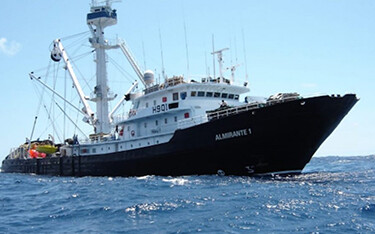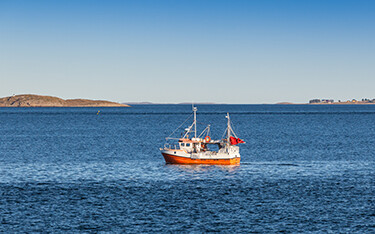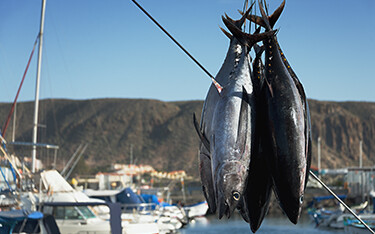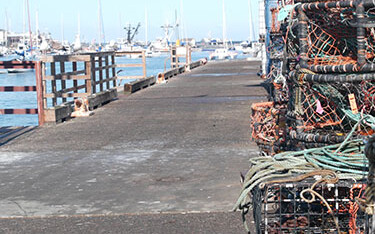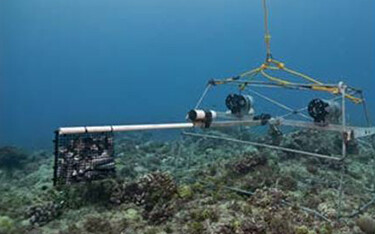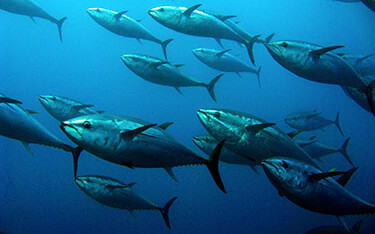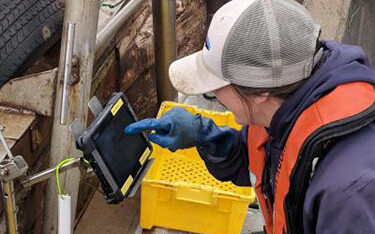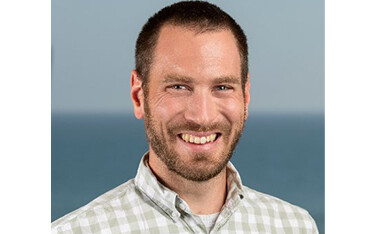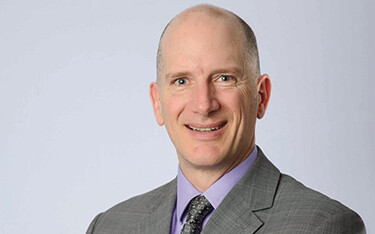Emma Desrochers is a freelance journalist based in Waialua, Hawaii, who writes about fisheries and sustainability. She graduated from Yale University in June 2021 with an undergraduate degree in environmental studies and mechanical engineering. She has contributed to the environmental conservation field through internships located in Ecuador, Thailand, and Hawaii.
Author Archive
The newest strategic plan from the International Seafood Sustainability Foundation (ISSF) is keeping Marine Stewardship Council (MSC) certification as a central tenant as the organization advocates for more sustainable wild-caught seafood.
The ISSF Strategic Plan for 2023-2027, "Continuously Improving Global Tuna Fishery Sustainability," was released 28 February, 2023. The plan highlights ISSF research, advocacy, and its approach to
… Read MoreThe Global Seafood Alliance (GSA) and the Responsible Fisheries Management (RFM) certification program have agreed to a memorandum of understanding with the goal of reducing certification costs and promoting market options for certified seafood.
Both entities will remain separate in regards to ownership, communications, and funding. But the agreement will result in a reduction of the number of audits required and number of certification
… Read MoreGreenpeace USA has given 15 out of 16 of the largest U.S. grocers a failing grade on addressing environmental sustainability and human rights issues in their tuna sourcing.
Its latest report on the subject, “The High Cost of Cheap Tuna,” released in February 2023, gave only Aldi receiving a passing grade. The report was issued as part of a global campaign to protect and conserve tuna stocks by changing consumer attitudes and
… Read MoreThere is a growing awareness across the global seafood industry of the importance of reducing bycatch. But change remains stubbornly hard to come by, according to International Seafood Consulting Group Fisheries Expert Petri Suuronen.
“It is evident that the harsh circumstances and the complex reality faced by commercial fishers often make it a challenging undertaking to adopt bycatch-reduction technologies. That is, the solutions defined
… Read MorePew Charitable Trusts hosted the first global summit on the topic of artificial intelligence (AI) in fisheries monitoring on 17 and 18 January, 2023.
The conference hosted data scientists, analysts, researchers, and policymakers to start the conversation on how AI can improve fisheries management.
The Pew Charitable Trusts International Fisheries Senior Associate Raiana McKinney summarized the three main topics discussed at the summit. The
… Read MoreThe Prince Albert II of Monaco Foundation, Community Jameel, Monégasque Association for the Protection of Nature (AMPN), and Blue Abacus announced a partnership on 23 January, 2023, to work together to deploy baited remote underwater video systems (BRUVS) for marine research.
BRUVS was developed by Blue Abacus in 2020, and co-founded by University of Western Australia Professor Jessica Meewig, as a way to film and analyze fish populations
… Read MoreGlobal consensus is building around the viability of harvest strategies for fisheries management, according to The Ocean Foundation International Fisheries Conservation Project Director Shana Miller.
Harvest strategies, also known as management procedures, are pre-agreed frameworks for making fisheries management decisions based on a proactive approach designed to achieve long-term sustainability for the fishery. According to an Ocean Foundation
… Read MoreNOAA Fisheries observers on the U.S. West Coast are moving to the use of tablet-based electronic systems to gather data on fishing vessels, replacing the outmoded pencil-and-paper system previously used.
Two of these systems are the ORCA 1 and 2 systems used by the West Coast Regional Observer Program and OPTECS system used by the West Coast Groundfish Observer Program.
Eric Brasseur, an electrical electronics technician, who helped to
… Read MoreA team of researchers at the University of California-Santa Barbara has issued seven recommendations to aid fisheries management organizations adapt to the impacts of climate change.
The recommendations, published in a research paper titled “Harvest control rules used in U.S. federal fisheries management and implications for climate resilience,” include a focus on harvest control rules (HCRs) with pre-agreed guidelines for how much
… Read MoreThe adoption of the Kunming-Montreal Biodiversity Framework at the United Nations Biodiversity Conference (COP15) on 19 December, 2022, in Montreal, Canada could have a broad impact on seafood industry.
The framework involves four goals and 23 action-oriented targets to achieve preservation and effective conservation management of 30 percent of the globe’s terrestrial, inland water, and coastal and marine areas by 2030, a goal pushed by
… Read More






